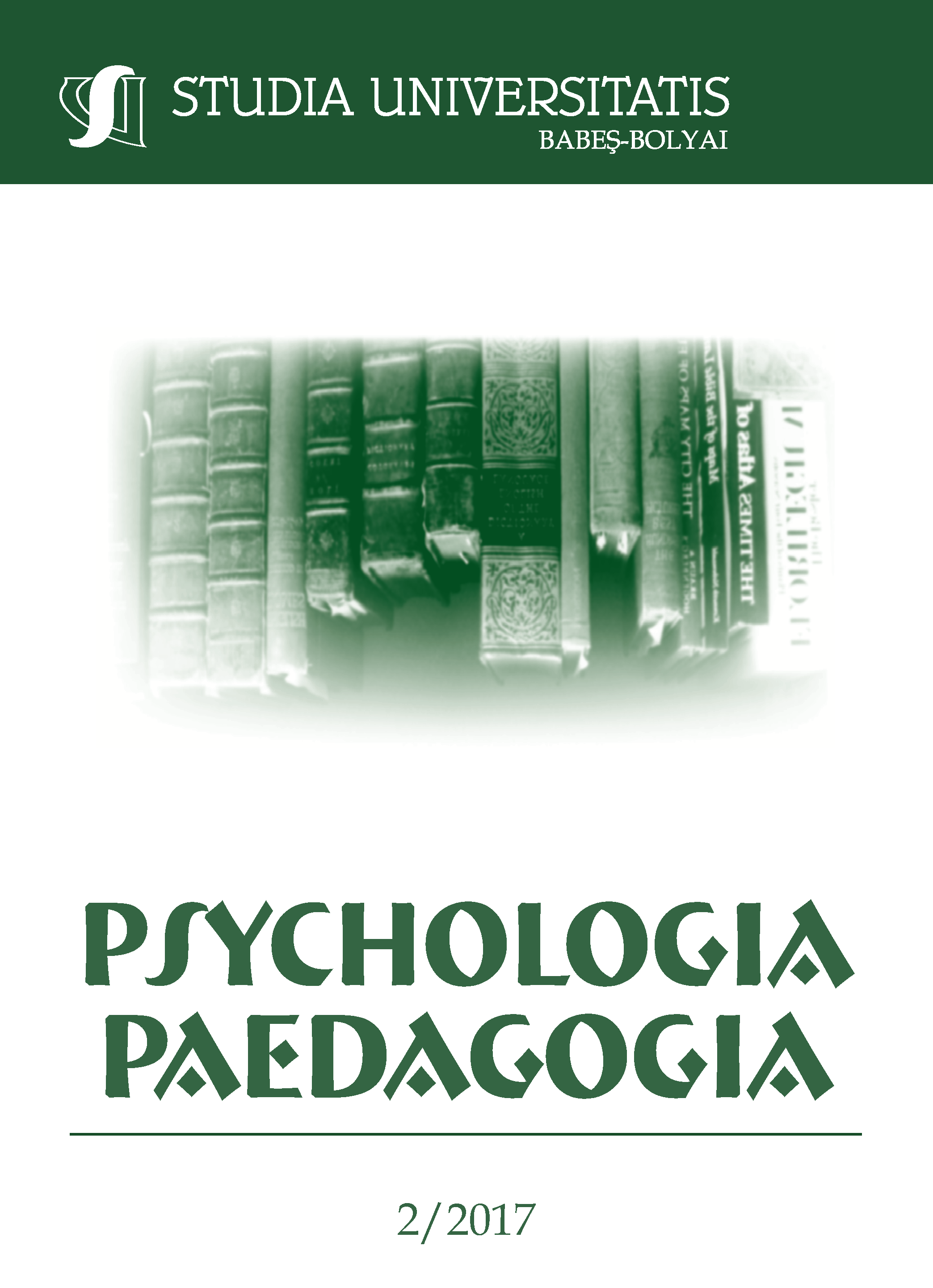THE ROLE OF STUDENT LEARNING PROFILES IN SUSTAINING FOREIGN LANGUAGE DIFFERENTIATED TEACHING
DOI:
https://doi.org/10.24193/subbpsyped.2017.2.03Keywords:
differentiated learning, student learning profile, content, process, product, learning styles.Abstract
This paper intended to yield relevant insight into the usefulness of creating student learning profiles in the context of delivering meaningful personalized instruction. In order to point out the applicability of such student learning profiles in differentiated instruction we have chosen the context of English language teaching as part of a Pre-service teacher training course. The quantitative research that has been conducted indicated that a student learning profile could provide the teacher with valuable insight into students’ interest, motivation, learning styles and preferred type of intelligence.
Die Rolle der Studenten Lernprofile in nachhaltiger Fremdsprache differenzierter Lehren. Dieses Dokument soll relevante Einsichten in die Nützlichkeit der Erstellung von Lernprofilen für Studenten im Zusammenhang mit dem Erreichen eines sinnvollen individuellen Unterrichts vermitteln. Um die Anwendbarkeit solcher Lernprofile in differenzierter Ausbildung aufzuzeigen, haben wir den Kontext des Englischunterrichts im Rahmen eines Lehrerfortbildungskurses ausgewählt. Die durchgeführte quantitative Forschung weist darauf hin, dass ein Lernprofil für Studenten dem Lehrer wertvolle Einblicke in das Interesse, die Motivation, die Lernstile und die bevorzugte Art der Intelligenz dem Studenten vermitteln könnte.
Schlüsselwörter: differenziertes Lernen, Lernprofil der Studenten, Inhalt, Prozess, Produkt, Lernstile.
References
Chapman, C., King, R., (2005). Differentiated Assessment Strategies: One Tool Doesn't Fit All. UK, USA, India: Corwin Press Inc.
Dörnyei, Z., Ushioda, E. (2009). Motivation, language identity and the L2 self. Multilingual Matters: Bristol.
European Commission, Strengthening teaching in Europe: New evidence from teachers compiled by Eurydice and CRELL, June 2015, Office for Official Publications of the European Communities, Luxembourg, 2015.
Gardner, H. (1983). Frames of Mind: The Theory of Multiple Intelligences. USA: Basic Books.
Garnett, S., (2005). Using Brainpower in the Classroom: Five Steps to Accelerate Learning. USA, Canada: Routledge.
Gregory, G.H., Chapman, C. (2002). Differentiated Instructional Strategies. One Size Doesn’t Fit All. California, London, New Delhi: Corwin Press Inc.
Heacox, D. (2002). Differentiating Instruction in the Regular Classroom. How to Reach and Teach all Learners, grades 3-12. USA: Free Spirit Publishing Inc.
Lightbrown, P.M., Spada, N. (2001). Factors Affecting Second Language Learning. In Candlin C., Mercer N., English Language Teaching in Its Social Context: A Reader (pp 28-43). London, New York: Routledge.
Petruș, R. (2013). A reader – The Didactics of the English Language (Ghid de bune practici - Didactica limbii engleze). București: Editura Matrix Rom.
Ryan, K., Cooper, J., Tauer, S. (2011). Teaching for Student Learning: Becoming a Master Teacher. USA, UK, Australia: Wadsworth Cengage Learning.
Shulman, L.S. (1987). Knowledge and teaching: Foundations of the new reform. Harvard Educational Review, 57, 1-22.
Shulman, L.S. (1986). Those who understand: Knowledge growth in teaching. Educational Researcher, 15, 4-14.
Sternberg, R.J., Zhang, L. (2011). Perspectives on Thinking, Learning, and Cognitive Styles. New York: Routledge.
Tomlinson, C.A. (2017). How to Differentiate Instruction in Academically Diverse Classrooms, Third edition. USA: ASCD.
Websites:
https://www.schooleducationgateway.eu/en/pub/resources/toolkitsforschools/subarea.cfm?sa=20
Downloads
Published
How to Cite
Issue
Section
License
Copyright (c) 2017 Studia Universitatis Babeș-Bolyai Psychologia-Paedagogia

This work is licensed under a Creative Commons Attribution-NonCommercial-NoDerivatives 4.0 International License.





